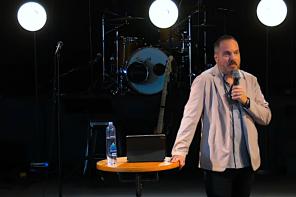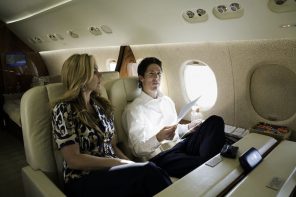Following up on my post earlier this morning about the Grassley televangelist investigation, the staff memo to Sen. Grassley acknowledges that transparency and accountability issues pervade here, but also makes clear a sensitivity to — or perhaps fear of — the religious right’s antipathy toward government. The memo recommends that the IRS establish an Advisory Committee, under the Federal Advisory Committee Act, comprised of church leaders and representatives, to “consider” issues related to religious organizations:
We believe that such a Committee would be helpful in facilitating an ongoing dialogue between churches and religious organizations and the IRS. Through our discussions with various stakeholders after the letters went out to the six churches, we perceived there to be a very high level of distrust between churches and religious organizations and the government.
This was most evident in your May 2008 meeting organized by the Alliance Defense Fund and that was attended by representatives from The Family Research Council, Focus on the Family, National Religious Broadcasters and others. The meeting was eye opening for us since, as tax professionals, we were not aware of non-tax issues that posed a threat to the operation of churches and religious organizations. This group specifically raised concerns about the Employment Non-discrimination Act (ENDA), which is not a tax issue. . . .
A federal advisory committee for churches and religious organizations would hopefully result in a proactive and collaborative approach to compliance with federal laws, with a focus on education and outreach, as opposed to a reactive, enforcement-oriented approach.
Let’s be clear here: the organizations named as having a “distrust” of government do not represent all “churches and religious organizations.” These are all religious right organizations who have an antipathy toward government and government regulation, particularly of religious organizations. As the staff report notes, one of the concerns of these groups was the Employment Non-Discrimination Act — in that context, they want to be free from civil rights laws prohibiting discrimination against LGBT people, because, they insist, religious freedom demands it. Similarly, greater government oversight of what religious organizations do with their tax exempt privileges is seen as an intrusion.
The staff report commendably acknowledges that privilege:
Churches have no constitutional rights beyond those accorded any other type of religious organization. Unlike the tax law, the U.S. Constitution does not distinguish churches from other religious organizations. The word “church” does not appear in the Constitution; the First Amendment refers to “religion,” not “church.”
The Constitution does not require the government to exempt churches from federal income taxation or from filing tax and information returns. Although tax exemption for religious institutions has been incorporated into American income tax statutes since the inception of the modern income tax in 1894, such exemption is a privilege, not a constitutional right. . .
The state, having exempted religious organizations from taxation, can require, in return, that they show their entitlement to exemption by conforming to the same financial reporting and tax audit provisions that apply to secular nonprofit organizations. . . . A sound tax system requires accountability from organizations that receive special tax benefits such as exemption from federal income tax.
Still, though, current tax law does not require churches to file tax returns. The staff memo highlights the problem with the lack of full cooperation in the investigation of four of the televangelists (Eddie Long, Kenneth Copeland, Paula White, and Creflo Dollar), combined with the absence of requirements by the IRS that churches file tax returns for themselves or auxiliary organizations, which are frequently for-profit operations:
The number and types of entities, including private airports and aircraft leasing companies, raises concerns about the use of the church’s tax-exempt status to avoid taxation. However, given the four churches’ refusal to provide tax information, we are unable to determine whether and the extent to which they are reporting and paying taxes on income earned in those entities.
That seems to be the heart of the problem: that no one knows to what extent these organizations are abusing their tax exempt status — thereby exploiting a tax benefit, at the expense of taxpayers, for their own personal enrichment. Since a system of, basically, trust, has broken down here, why would “self-reform” work better than more government oversight of transparency and accountability?
The staff memo also recommends repeal of the IRS prohibition on electioneering by churches, long a target of the religious right which deems it an unconstitutional restriction on free speech and religious freedom. The rule, it’s true, is rarely enforced by the IRS, as the memo notes. But if it’s repealed, and churches are free from the possibility of an IRS investigation for endorsing candidates, churches would become even more politicized, and free to use their tax-exempt status to do so.
UPDATE: Michael Batts, who has been appointed to lead the ECFA commission Grassley requested, reiterated that both the ECFA and Grassley agree on the “principle that less government is better,” adding that the “overarching principle is the independence of the church from the government and the independence of the government from the church” must be considered in the commission’s work.




